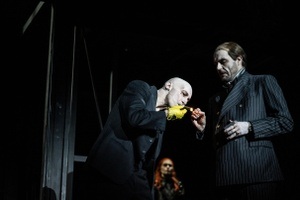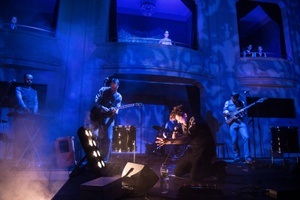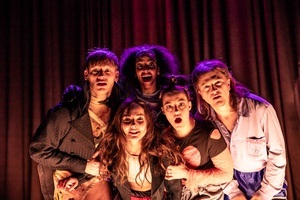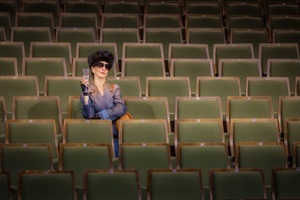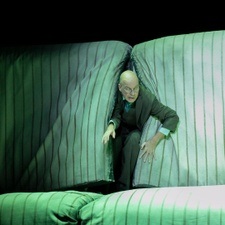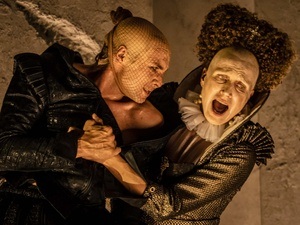PHOTO:
© David Young
Man muss sich Mephisto als einen glücklichen Menschen vorstellen
In the organizer's words:
Gründgens, Mann and the German soul - by Jan Bonny and Jan Eichberg based on the novel by Klaus Mann - World premiere on October 18, 2024 - Schauspielhaus, Kleines Haus - Schauspiel
Klaus Mann's novel "Mephisto" tells the story of the actor Hendrik Höfgen, who becomes a stage star of the so-called "New Reich" in the 1930s. The price of his career is his guilty entanglement. Höfgen comes to terms with the powerful, both driven and seduced, and becomes a perpetrator. Torn between fear and a thirst for fame, he realizes too late that he - like Doctor Faustus - has long been on the dark side. He commits high treason against his former ideals, even against his lover, and becomes a "monkey of power", a "clown to distract the murderers". At least that is how Klaus Mann describes it.
What does this text, which is so persistently referred to as Mann's "key novel", reveal to us? The life and work of Gustaf Gründgens and his entanglement in it are alluded to very clearly, but Mann insisted that it was not a portrait, but rather - more broadly - "a symbolic type". This refers to the type of artist who has to place himself and his art in relation to the world, the state and society, even though our great longing is for art to stand independently and for itself. And that this contradiction is insoluble.
The film director Jan Bonny, known for works such as "King of Stonks" and "Wintermärchen", is staging the play for the first time at the Düsseldorfer Schauspielhaus. Together with his co-author Jan Eichberg, he will read Mann's text from a contemporary perspective and ask where art and artists stand today in the face of the threatening scenarios of the New Right and a republic that is deeply divided and insecure in many respects.
What does this text, which is so persistently referred to as Mann's "key novel", reveal to us? The life and work of Gustaf Gründgens and his entanglement in it are alluded to very clearly, but Mann insisted that it was not a portrait, but rather - more broadly - "a symbolic type". This refers to the type of artist who has to place himself and his art in relation to the world, the state and society, even though our great longing is for art to stand independently and for itself. And that this contradiction is insoluble.
The film director Jan Bonny, known for works such as "King of Stonks" and "Wintermärchen", is staging the play for the first time at the Düsseldorfer Schauspielhaus. Together with his co-author Jan Eichberg, he will read Mann's text from a contemporary perspective and ask where art and artists stand today in the face of the threatening scenarios of the New Right and a republic that is deeply divided and insecure in many respects.




